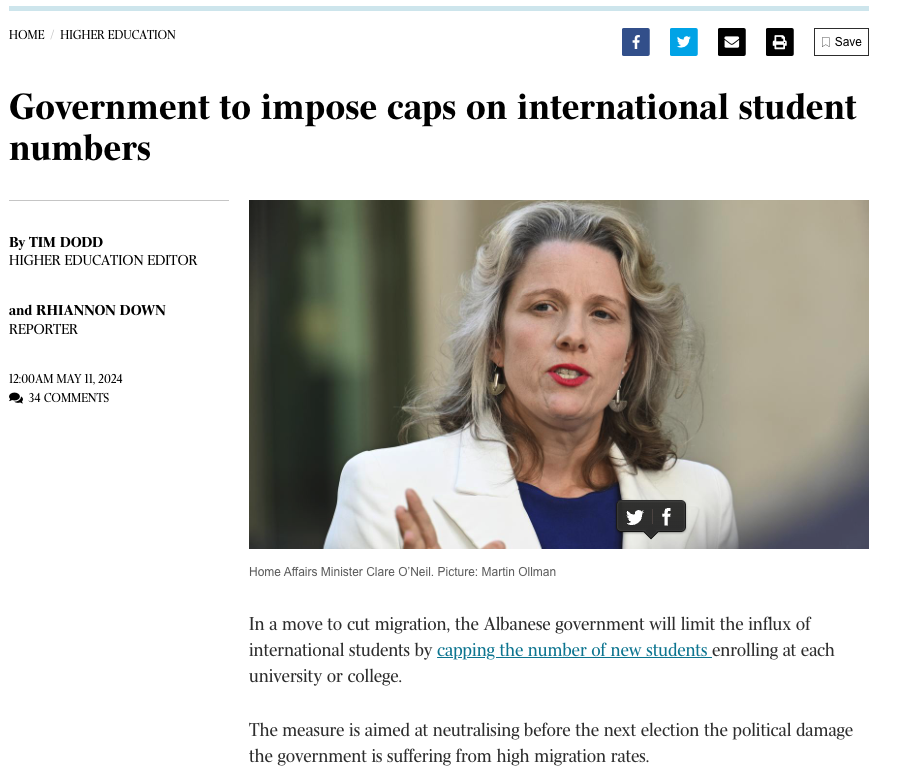Australian government to impose caps on international student numbers
It has been reported today by the Australian, that the Albanese government plans to implement a cap on the number of new international students each university or college can enroll as a strategy to reduce migration.
This new regulation will predominantly affect the small providers and private organisations as the will be more likely targeted by the government. It is clear that major institutions have avoided the imposition of a strict cap on student numbers as the government introduced a more flexible measures.
Despite the statement from the government that this policy is being introduced to mitigate the political repercussions of high migration rates ahead of the next election, it is not clear how the process will work, as there are already CRICOS numbers applied to each provider.
The proposed cap will be part of a legislative package to be presented to Parliament next week. This package will also address issues of exploiting loopholes in regulations governing international students. It has been proposed that the legislation will:
- prohibit colleges from owning businesses that act as education agents,
- halt the registration of new international educational providers,
- mandate that new providers demonstrate a history of providing quality education to domestic students before accepting international students,
- bar institutions under serious regulatory scrutiny from admitting new students, and
- stop education agents from earning commissions on international students who switch educational providers within Australia.
This decision to enforce a cap marks a setback for the international student sector, which has been vigorously contesting the government on any further changes. The budget will also reportedly propose a substantial increase in international student fees.
It appears that the government is taking a tough stance against the international education sector. These policies may reflect an attempt to balance public sentiment and political pressures with the needs of the education sector, housing and the economy, however this aggressive approach seems to be an effort to divert attention from their mishandling of the 408 COVID visas. By introducing new, potentially disruptive policies, the government may be complicating matters further for the entire industry. This strategy, while aimed at addressing one issue, could inadvertently create additional challenges across the educational landscape, impacting institutions, students, and associated the whole economy.





Leave A Comment